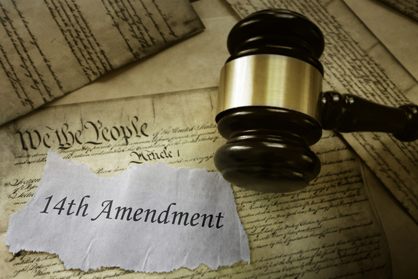Judge Richard Leon of the US District Court for the District of Columbia has created a stir by becoming the first judge to cast doubt upon the constitutionality of the NSA’s mass collection of the telephone records of millions of Americans. While Judge Leon held in his ruling that the plaintiffs had legal standing to challenge the NSA’s practices, his scathing observations in the opinion are significant.
Immediately after issuing his opinion, the judge put a stay on his order pending the outcome of future litigation. The government is not expected to give up and the judge clearly anticipated an appeal.
Judge Leon observed that the massive telephone record collection program was “almost Orwellian” in nature, and differentiated from legal precedents used to justify the program. Opining that NSA’s program was likely unconstitutional, Judge Leon wrote, “Because the government can use daily metadata collection to engage in ‘repetitive, surreptitious surveillance of a citizen’s private goings on,’ the NSA database ‘implicated the Fourth Amendment each time a government official monitors it.”
Leaving the government little room to maneuver, the opinion noted, “It’s one thing to say that police expect phone companies to occasionally provide information to law enforcement; it is quite another to suggest that our citizens expect all phone companies to operate what is effectively a joint intelligence-gathering operation with the government.”
The judge also observed that plaintiffs have a right of injunction against the NSA’s practice because earlier precedents like the case of Smith v. Maryland could not have considered the radical technological advances that took place in the last 34 years since the precedent was set.
In his 68-page memorandum, Judge Leon writes, “I am convinced that the surveillance program now before me is so different from a simple pen register” that earlier precedents are of little value in determining whether NSAs current program violates the Fourth Amendment.
In differentiating from precedents, the judge wrote, “Indeed, the question in this case can more properly be styled as follows: When do present-day circumstances – the evolutions in the government’s surveillance capabilities, citizens’ phone habits and the relation between the NSA and telecom companies – become so thoroughly unlike those considered by the Supreme Court that 34 years to a precedent like Smith simply does not apply? The answer, unfortunately for the government, is now.”
Observing that the collection of metadata by the NSA has done little to impede terrorist attacks, at least according to what the government submitted before the court, Judge Leon stated, “I believe that bulk telephone metadata collection and analysis almost certainly does violate a reasonable expectation of privacy.”






































